Discover Future Around & Find Out
Future Around & Find Out

Future Around & Find Out
Author: Dan Blumberg
Subscribed: 26,538Played: 175,697Subscribe
Share
© 2026
Description
You know what would be awesome? If we could build the future we want — before we muck it up.
Future Around & Find Out helps builders think clearly about AI and emerging technologies, grapple with the implications, and decide what to build next.
Independent technologist and former NPR journalist Dan Blumberg speaks with founders, makers, and you to celebrate breakthroughs, call BS on the hype, explore how things might go sideways — and how we can steer the future in the right direction.
The Webby Awards have honored the show (formerly known as CRAFTED.) as a top tech podcast three years in a row!
On Tuesdays, we feature interviews with the builders changing how we work, live, and play.
On FAFO Fridays, futurist Kwaku Aning joins Dan for a playful recap of the week in tech, including the amazing, the scary, and the strange.
You’ll also hear about innovations that too often get overshadowed by AI, including in deep tech, biotech, fintech, quantum computing, robotics, blockchain, and more.
Across it all, you’ll hear sharp takes on what comes next and what builders need to know now.
So let’s Future Around & Find Out together!
https://www.FutureAround.com
Future Around & Find Out helps builders think clearly about AI and emerging technologies, grapple with the implications, and decide what to build next.
Independent technologist and former NPR journalist Dan Blumberg speaks with founders, makers, and you to celebrate breakthroughs, call BS on the hype, explore how things might go sideways — and how we can steer the future in the right direction.
The Webby Awards have honored the show (formerly known as CRAFTED.) as a top tech podcast three years in a row!
On Tuesdays, we feature interviews with the builders changing how we work, live, and play.
On FAFO Fridays, futurist Kwaku Aning joins Dan for a playful recap of the week in tech, including the amazing, the scary, and the strange.
You’ll also hear about innovations that too often get overshadowed by AI, including in deep tech, biotech, fintech, quantum computing, robotics, blockchain, and more.
Across it all, you’ll hear sharp takes on what comes next and what builders need to know now.
So let’s Future Around & Find Out together!
https://www.FutureAround.com
95 Episodes
Reverse
You know what would be awesome? If we could build the future we want — before we muck it up.Future Around & Find Out helps builders think clearly about AI and emerging technologies, grapple with the implications, and decide what to build next.Independent technologist and former NPR journalist Dan Blumberg speaks with founders, makers, and you to celebrate breakthroughs, call BS on the hype, explore how things might go sideways — and how we can steer the future in the right direction.The Webby Awards have honored the show (formerly known as CRAFTED.) as a top tech podcast three years in a row! On Tuesdays, we feature interviews with the builders changing how we work, live, and play. On FAFO Fridays, futurist Kwaku Aning joins Dan for a playful recap of the week in tech, including the amazing, the scary, and the strange.You’ll also hear about innovations that too often get overshadowed by AI, including in deep tech, biotech, fintech, quantum computing, robotics, blockchain, and more.Across it all, you’ll hear sharp takes on what comes next and what builders need to know now. So let’s Future Around & Find Out together! FutureAround.com(Music by Jonathan Zalben)
Here's the full text of this short episode:Hey everyone, Dan here with a quick, exciting update on this show... the name is about to change! In a few days -- on January 20th -- you'll see that this podcast will have new cover art, a new name, a new trailer, and more...I'm not going to reveal that name today, but I do want to share a bit of why I'm changing the name of a show that's been honored 3 years straight by the Webby Awards -- and what is NOT changing.OK, so there are three main reasons for the name change:- the first is very practical: "crafted" is really hard to find in search. I've literally stood next to people who are looking to subscribe and they can't find the show. I swear this wasn't the case when we launched 3yrs ago, but today there are several shows that are either called crafted or something close to it. - the second reason is more personal: the show is mine now -- that wasn't always the case. You may recall the show launched when I was with a high craft software consultancy doing product and client work. The podcast was a surprise! When I left and got full ownership of the show I didn't want to change too many things all at once. Also, I like the name crafted, but -- and this leads to the *real* reason I'm changing --- it no longer fits the show.- crafted is a past tense verb. and it perfectly described the original incarnation of this show, where founders, makers, and innovators would look *back* on things they'd built and we'd do a sort of case study that would help other builders learn from their mistakes and understand how that great product or company they built got so great...So here's the thing... I'm not really doing that sort of case study thing anymore. And I haven't for a while. Creating explicitly educational content is not favorite thing. I'm not exactly a "here is a framework" kind of guy. There are other people who LOVE to create that sort of content and they do a great job with it. So I've been following my interests... For a while now, this show has been much less concerned with teaching case studies and much interested in what comes *next.* * What are the implications of new tech? * How will AI change how we live, work, play, teach our kids...? * Should we get ready to live with humanoid robots? * How are stablecoins changing the world of money? * And what about quantum computers? And what do builders need to know about these things so that we can build a future we actually want? See that part is not changing... the show is still for builders. And you can take that literally: as in people who make software. Or if you want you can take it a bit more broadly: as in: people who putting in the work to build a better future.Sorry if that's a bit cheesy, but it's true. Because while I'm optimistic that we will build an amazing future, there is... uh... a lot going on right now in tech and in the world. And I believe that, together, we have power to steer the future in the right direction. This show will still feature the world's top technologists. And we're going to get into all of these future-forward things. Of course, we'll talk about things they've done in the past, because if we don't learn from history... well, you know how that expression goes. So, get ready to see some new art and a new name -- I'll give you a hint, it'll have the word future in it -- on Tuesday. And I would love your help spreading the word. When the new trailer and website drop, please share them with all your builder friends. So stay tuned...
Travel is one of the most demo-friendly use cases for AI — and one of the hardest industries to actually disrupt.Every AI launch seems to promise the same thing: “Tell me where you want to go, and I’ll plan everything.” But behind the slick demos sits a deeply consolidated industry dominated by platforms, hotel chains, and airlines that optimize for upsell and extraction.Rafat Ali is the founder and CEO of Skift, which bills itself as “the daily homepage for the global travel industry.” We discuss whether AI is likely to have a traveler-friendly effect — or whether the big platforms will just use these new tools of hyper-personalization to extract even more from us. We cover: Whether AI creates new intermediaries—or just strengthens existing giantsWhy no breakout consumer AI travel startup has emerged (yet)Where AI does work in travel today: ops, logistics, and B2B automationWhy travel is a graveyard for “great UX, bad business” startups (RIP HipmunkRafat’s dad hacks for traveling with three kids---Featured voices:Rafat Ali — Founder and CEO of SkiftMe (Dan Blumberg) — I’m the host of CRAFTED. and the founder of Modern Product Minds. HMU if you want to build something great! I love building from zero to one.---And if you please…Share with a friend! Word of mouth is by far the most powerful way for podcasts to growSubscribe to the CRAFTED. newsletter at crafted.fmShare your feedback! I’m experimenting with new episode formats and would love your honest feedback on this and other episodes. Email me: dan@modernproductminds.com or DM me on LinkedInSponsor the show? I’m actively speaking to potential sponsors. Drop me a line and let’s talk.Get psyched!… There are some big updates to this show coming soon!
This week I’m turning the mic over to podcast friends Mike Masnick and Ben Whitelaw, hosts of Ctrl-Alt-Speech, a show about what happens when we talk on the internet, the messy world of content moderation, trust & safety, and the laws trying (and often failing) to keep up.In their first episode of the new year, they build a 2026 bingo card of things that might happen across AI, regulation, and online speech. Not predictions exactly — more a way to follow along and yell “BINGO” as we stumble into another year of deepfakes, age verification fights, and calls to repeal Section 230.You can find links to Ctrl-Alt-Speech on all podcast apps here: https://www.ctrlaltspeech.com/And this — for now — name change coming soon! — is CRAFTED. Sign up for the newsletter and stay tuned at https://www.crafted.fmThe new name and the reasons why are coming in about a week.
Happy New Year! This is the time of year when people make big changes. So, I'm bringing back my conversation with the co-author of Tomorrowmind. It's a fascinating book and especially relevant at this time of the year. Dr. Gabriella Rosen Kellerman writes that that career trajectories used to be like steamships (full steam ahead), and then they became more like sailboats (lots of tacking), but now we're swirling in whitewater. So how can we stay afloat? How can we flourish? “When you're kayaking in the whitewater. It's hard to get a sense of what could be around the bend, but if you know if what's coming up is a sudden cascade or versus another, you know, set of gentle bumps, or maybe it's a calmer space in the river, it can give you a great advantage.”On this episode of CRAFTED., we focus on PRISM, the five key skill groups that Gabriella says can help you be more successful: Prospection, Resilience, Innovation and creativity, Social support by way of rapid rapport, and Mattering and meaning. Gabriella was until recently the Chief Product Officer at BetterUp, a platform that helps organizations and people level up through a mixture of human and AI coaching. She originally appeared on the show in a two-part episode. Part one is includes more on the tomorrowmind skills and her career path; in part two, she describes how BetterUp builds products and innovated under her leadership. And stay tuned as we employ our own tomorrowminds here at CRAFTED... there are some big changes to the show, including a new name, coming this month!---Featured voices:Dr. Gabriella Rosen Kellerman, Partner at BCG, former CPO of BetterUp, and co-author, with Martin Seligman, of Tomorrowmind Me (Dan Blumberg) — I’m the host of CRAFTED. and the founder of Modern Product Minds. HMU if you want to build something great! I love building from zero to one.---And if you please…Share with a friend! Word of mouth is by far the most powerful way for podcasts to growSubscribe to the CRAFTED. newsletter at crafted.fmShare your feedback! I’m experimenting with new episode formats and would love your honest feedback on this and other episodes. Email me: dan@modernproductminds.com or DM me on LinkedInSponsor the show? I’m actively speaking to potential sponsors for 2026 episodes. Drop me a line and let’s talk.Get psyched!… There are some big updates to this show coming soon!
A guest episode from Famous & Gravy. On each episode, host Michael Osborne and guests look at the life of a famous dead celebrity and ask themselves if it's a life they would've wanted. The show gets into all sorts of things you will not in that person's official obituary or biography. I'm a fan. Here's how they describe today's episode:This person died 2011, age of 56. He dropped out of Reed College in 1972 and once said that taking LSD was among the most important things he ever did. In the early years of his career, his obsession with detail drove colleagues crazy, but later he inspired extraordinary loyalty. In the 1990s he bought a small computer graphics spinoff from George Lucas and built it into Pixar. He told the world he would step down as Apple’s CEO if he could no longer meet expectations — and then he did. Today’s dead celebrity is Steve Jobs.Subscribe to Famous & Gravy in all your favorite podcast apps and at famousandgravy.com---And if you please…Subscribe to the CRAFTED. newsletter: crafted.fmShare with a friend! Word of mouth is by far the most powerful way for podcasts to growSponsor the show? I’m actively speaking to potential sponsors for 2026 episodes. Drop me a line and let’s talk.Get psyched!… There are some big updates to this show coming in January
This week I'm the guest and my friends at Whiskey Web and Whatnot are the hosts. And they're great hosts, because they send their guests a bottle of whiskey before talking web and whatnot...As we head into the holidays I hope you'll raise a glass with us and enjoy this very laid back episode... Chuck and Robbie hosted me a year ago and I love that they got me on tape when they did, because it was just as I was starting to consider making some big changes to my show... Changes that I will announce in late January... so get excited for that! and please subscribe to this here podcsat in your favorite apps, and get the newsletter at crafted.fmHere's how they described the episode:Robbie and Chuck talk with Dan Blumberg about his journey from radio producer to product manager and podcaster. They explore the art of building great software, podcasting essentials, and the changing landscape of podcast platforms. Plus, Dan shares his kayaking adventures and insights on balancing authenticity and growth.And if you please…Subscribe to the CRAFTED. newsletter atcrafted.fmShare with a friend! Word of mouth is by far the most powerful way for podcasts to growSponsor the show? I’m actively speaking to potential sponsors for 2026 episodes. Drop me a line and let’s talk.Get psyched!… There are some big updates to this show coming soonFor more on Whiskey Web and Whatnot...Check ou:t https://whiskey.fmConnect with Robbie Wagner: https://x.com/RobbieTheWagnerConnect with Chuck Carpenter: https://x.com/CharlesWthe3rd In this episode:- (00:00) - Intro- (03:26) - Whiskey review and rating: Woodinville Straight Bourbon- (09:23) - Apple Podcasts vs Spotify- (11:20) - Spotify video vs YouTube- (13:02) - Podcasting audio vs video- (15:24) - Advice on starting a podcast- (19:24) - Equipment requirements for guests on podcasts- (22:15) - Having a pre-interview interview- (26:06) - Social media and podcasting challenges- (27:37) - How to grow your audience- (33:18) - How to make money as a podcaster- (37:28) - Being yourself vs having a persona- (38:42) - Monetizing your podcast- (42:11) - What's missing from RSS- (43:38) - Dan's non-tech career ideas- (45:40) - Podcast recommendations- (49:12) - Dan's plugsLinks- Woodinville Straight Bourbon: https://woodinvillewhiskeyco.com/- Crafted: https://crafted.fm- WNYC: https://www.wnyc.org/- NYT: https://www.nytimes.com/- Apple Podcasts: https://podcasts.apple.com/- Spotify: https://www.spotify.com/- Pocket Casts: https://pocketcasts.com/- IAB: https://www.iab.com/- National Geographic: https://www.nationalgeographic.com/- Shure SM7B: https://www.shure.com/en-US/products/microphones/sm7b- Focusrite: https://focusrite.com/- Shure MV7: https://www.shure.com/en-US/products/microphones/mv7- Elgato: https://www.elgato.com/- AirPods: https://www.apple.com/airpods/- Audio Technica: https://www.audio-technica.com/en-us/- Morning Edition: https://www.wnyc.org/shows/me- Chicago Public Radio: https://www.wbez.org/- Riverside: https://riverside.fm/- TikTok: https://www.tiktok.com/- Mr. Beast: https://youtube.com/@mrbeast- Docker: https://www.docker.com/- Artium: https://www.thisisartium.com/- Jay Clouse: https://creatorscience.com/- Hark: https://harkaudio.com/- Syntax: https://syntax.fm/- Hard Fork: https://www.nytimes.com/column/hard-fork- Big Technology with Alex Kantrowitz: https://www.bigtechnology.com/- Decoder with Nilay Patel: https://www.theverge.com/decoder- How I Built This: https://www.npr.org/series/490248027/how-i-built-this- Acquired: https://www.acquired.fm/- Smartless: https://smartless.com/- Wondery: https://wondery.com/- Sacha Baron Cohen: https://en.wikipedia.org/wiki/Sacha_Baron_Cohen- Tim Burton: https://en.wikipedia.org/wiki/Tim_Burton- Beetlejuice: https://www.warnerbros.com/movies/beetlejuice- Darknet Diaries: https://darknetdiaries.com/
Looking to fund your startup? If you're new to the process, fundraising can be difficult to navigate. Not only are there a myriad of ways to go about it, but it can be hard to tell whether the tips, tricks, and advice floating around are based on any evidence at all.[This week, I'm turning the mic over to my friends at The Startup Podcast. featuring Carta's head of insights on what you need to know about today's fundraising environment and how AI is affecting valuations, equity, and how companies grow. Here's how they describe this episode...]So, what is the truth?And what are the actual, data-backed insights that can help you choose the best method of fundraising for your own business?Enter: Peter Walker.As Head of Insights at Carta, he has access to, and industry knowledge about, the vast sets of funding data that will help you cut through the noise. Today, he joins Chris and Yaniv in discussing the real data behind startup funding trends in 2025 and the key takeaways you can apply to your own startups.In this episode, you will:Discover why Silicon Valley valuations often hurt founders more than they helpUnderstand how AI startups now account for nearly half of all venture funding, and what that means for non-AI foundersLearn how lean AI-driven teams are reshaping early-stage hiring, with Series A companies shrinking from 25 employees to just 15See why most founders misunderstand SAFE notesExplore why 70% of startup employees never exercise their equityUncover the reasons behind why nearly 40% of startups lose a co-founder within seven yearsGet clarity on founder vesting, equity splits, and why a six-year vesting schedule may protect your company better than fourReframe your goals as a founder: why chasing “life-changing money” isn’t the right reason to start a company---Featured voices:Peter Walker - Head of Insights at CartaYaniv Bernstein - Co-host of The Startup PodcastChris Saad - Co-host of The Startup PodcastMe (Dan Blumberg) — I’m the host of CRAFTED. and the founder of Modern Product Minds. HMU if you want to build something great. I love building from zero to one.---And if you please…TAKE THE SURVEY: It'll just take five minutes and I'll give $100 to the charity of choice for one lucky respondentShare with a friend! Word of mouth is by far the most powerful way for podcasts to growSubscribe to the CRAFTED. newsletter at crafted.fmShare your feedback! I’m experimenting with new episode formats and would love your honest feedback on this and other episodes. Email me: dan@modernproductminds.com or DM me on LinkedInSponsor the show? I’m actively speaking to potential sponsors for 2026 episodes. Drop me a line and let’s talk.Get psyched!… There are some big updates to this show coming soon!
“So if you take any great startup and look backwards, you'll see that 90 percent of their growth came from like 10 percent of the stuff that they tried. So how do you find that 10 percent as quickly as possible?”Matt Lerner has advised hundreds of startups on how to grow. Now, the CEO of SYSTM has written a book called Growth Levers and How to Find Them where he shares his approach. This episode of CRAFTED. is full of actionable advice on how you can grow your products and companies. Matt will tell us about the mindset shift founders need to make from thinking about their products to thinking about their customers needs. We'll talk about jobs-to-be-done (JTBD) style interviewing and why it's such a powerful approach, but also why at first Matt was put off by some of the overly academic language that often goes with jobs. And we'll talk about how you can get new customers to that aha moment as quickly as possible, so they stick with your product. Plus, lots of real talk about founders and the mistakes they make. ---Featured voices:Matt Lerner (Founder and CEO of SYSTM; the book is Growth Levers and How to Find Them)Me (Dan Blumberg) — I’m the host of CRAFTED. and the founder of Modern Product Minds. HMU if you want to build something great. I love building from zero to one.---And if you please…TAKE THE SURVEY: It'll just take five minutes and these surveys are actually really important for podcasters. Share with a friend! Word of mouth is by far the most powerful way for podcasts to growSubscribe to the CRAFTED. newsletter at crafted.fmShare your feedback! I’m experimenting with new episode formats and would love your honest feedback on this and other episodes. Email me: dan@modernproductminds.com or DM me on LinkedInSponsor the show? I’m actively speaking to potential sponsors for 2026 episodes. Drop me a line and let’s talk.Get psyched!… There are some big updates to this show coming soon---Key Moments:(02:10) - 90 percent of growth comes 10 percent of the stuff you try
(03:43) - Over-thinkers, under-thinkers, and delegators: the 3 types of founders and the mistakes they make
(07:30) - Why the pace of learning is so important
(09:41) - Great examples of companies that learn quickly
(10:42) - The “locksmith moment” and why you need to find yours
(12:35) - Jobs-to-be-Done style interviewing and why it’s so effective
(13:57) - How to do a JTBD interview
(15:05) - The mindset shift founders need to make from thinking about their product to thinking about the customers’ needs – and why it’s so hard for them to do so
(21:40) - Growth Sprints and how to set them up for success
(25:23) - Retention and customer activation: still (!) overlooked by most and why it’s so critical
(29:16) - Matt writes a blog post on the spot about how working at an oil refinery taught him about startups
(31:52) - Writing a book is not an agile process! And the fantastic reception for Growth Levers
** I'd be so grateful if you'd take five minutes and answer our annual survey. It'll help me make the show better for you! **Hey folks, it's Thanksgiving weekend here in the US and it's the time of year when we think about what we're grateful for, so today I'm re-sharing some words from perhaps the most grateful person I've ever had on the show. Kelsey Hightower is a legendary developer. And he has an incredible story. He went from sleeping in his car to becoming a pioneer in the Kubernetes world, a distinguished engineer at Google, and then... he retired. At the age of 42. Because he wanted to have more impact on the world than he thought he could have by advancing up the career ladder. So here are 15 minutes of my original interview with him, because some of the things he said — not about tech, but about humanity, gratitude, and prioritizing what matters — have really stuck with me.Here’s the full interview, originally released in July 2024. We cover a lot, including how he became so good at live demos, why emotion is the key to great software — and storytelling — and how it’s those “boring innovations” and mindset shifts you need to make as a technologist that will take you from “hello, world” to “hello, revenue.” ---Featured voices:Kelsey Hightower: "Retired, not tired" former distinguished engineer at Google and Kubernetes PioneerMe (Dan Blumberg) — I’m the host of CRAFTED. and the founder of Modern Product Minds. HMU if you want to build something great. I love building from zero to one.---And if you please…TAKE THE SURVEY: It'll just take five minutes and these surveys are actually really important for podcasters. Share with a friend! Word of mouth is by far the most powerful way for podcasts to growSubscribe to the CRAFTED. newsletter at crafted.fmShare your feedback! I’m experimenting with new episode formats and would love your honest feedback on this and other episodes. Email me: dan@modernproductminds.com or DM me on LinkedInSponsor the show? I’m actively speaking to potential sponsors for 2026 episodes. Drop me a line and let’s talk.Get psyched!… There are some big updates to this show coming soon
In this special live Web Summit edition from Lisbon, roboticist, investor, and founder Chris Coomes shares how and why he built X1 Pipeline, an AI platform that evaluates startups the way he would — only much, much faster. It's something he wishes he had when looking for early stage robotics startups while at Google and Amazon. We also talk about the strange humanoid robots wandering the convention hall at Web Summit, why "agents" is a vastly overused word and why (his take) most of the agent startups he saw at the conference won't be around next year. Plus, why plugging things in is hard — and why (my take) that's a good thing, because it means we humans will still have jobs (as plumbers and electricians) in the future. Enjoy this fun episode, recorded live from the "Croissant Studio" on the floor at Web Summit in Lisbon. --- Featured voices:Chris Coomes — Founder of X1 PipelineMe (Dan Blumberg) — I’m the host of CRAFTED. and the founder of Modern Product Minds. HMU if you want to build something great. I love building from zero to one.And if you please…Share with a friend! Word of mouth is by far the most powerful way for podcasts to growSubscribe to the CRAFTED. newsletter at https://crafted.fm/Share your feedback! I’m experimenting with new episode formats and would love your honest feedback on this and other episodes. Email me: dan@modernproductminds.com or DM me on LinkedInSponsor the show? I’m actively speaking to potential sponsors for 2026 episodes. Drop me a line and let’s talk.Get psyched!… There are some big updates to this show coming soon!
In this special live Web Summit edition from Lisbon, I sit down with Tom Haworth, founder of B13.ai, to talk about why “good enough” AI might actually be one of the most dangerous places we can get stuck.And you’ll hear Tom say it’s time for the leaders of vibe coding platforms (e.g. Lovable, Replit, Cursor) to acknowledge that they’re great when you need to “demo not memo”, but not great (today and maybe ever) at delivering production-grade, secure code. We also make a few detours as we detail a ridiculous week in Lisbon, including:How (shocker!) 90% of the conference was about AIWhy “good enough” AI is not a good place to beWhether we’ll graduate to great AIAI’s ROI now and in the futureWhy it’s still iffy whether AI agents they can be trusted to accomplish complex jobsRobots wander Web Summit, do the Macarena, fall downHow tennis great Maria Sharapova uses (IBM’s) AI How the presumptuous Web Summit’s app prominently suggests we all message Maria… (as if!) Visa wants to help creators monetize (yay! it me!), using Web3 technologies (yes, they said “Web3”; no, I was not expecting to hear a non-ironic use of that phrase)Why self-driving cars are the best robots — and coming soon to more of EuropeHow much Web Summit pampers (and corrupts) the media: I was like a stuffed goose. Hurray for Portuguese custard and other delicacies!How even the beer at Web Summit was high tech---Featured voices:Tom Haworth: Founder of B13.ai, a software consultancy that "empowers non-technical innovators and organizations to build with confidence, delivering market-ready solutions that we design, launch and run."Me (Dan Blumberg) — I’m the host of CRAFTED. and the founder of Modern Product Minds. HMU if you want to build something great. I love building from zero to one.---And if you please…Share with a friend! Word of mouth is by far the most powerful way for podcasts to growSubscribe to the CRAFTED. newsletter at crafted.fmShare your feedback! I’m experimenting with new episode formats and would love your honest feedback on this and other episodes. Email me: dan@modernproductminds.com or DM me on LinkedInSponsor the show? I’m actively speaking to potential sponsors for 2026 episodes. Drop me a line and let’s talk.Get psyched!… There are some big updates to this show coming soon!
Hey everyone. I've gotten so much interesting feedback on last week's Halloween episode featuring the anonymous CTO saying spooky things about AI and coding agents that I thought I'd share a quick solo voice memo style episode with you. The feedback ranges from people saying he's spot on about the insidious problems that AI coding agents create while others saying "he's holding it wrong." In other words, he's not using AI properly. Listen to this short episode and you'll also hear reaction to his claim that "adversarial AI" is not really a thing and why context and data are so critical. And please please please: take five minutes and complete our annual survey. I have big plans for the show and some new things I'm working on. So I really want to hear from you. And for one lucky survey taker, I will make a $100 donation to the charity of your choice. Here's the survey. Again: it takes just five minutes and these surveys are actually really important to podcasters and sponsors. Thanks so much!And go to crafted.fm to get the newsletter and see all past episodes, including the Halloween Special with the Anonymous CTO on Spooky AI Things (listen to this first before listening to today's episode)
AI coding assistants promise to write your code, speed up your sprint, and maybe even make engineers obsolete. But what if the people building with them every day see something very different?In this special Halloween edition of CRAFTED. — which also marks the show’s third anniversary! — a masked CTO shares what he can’t say publicly: that these tools are powerful, but insidious. In his view, coding assistants are great for auto-complete, but they can’t do what a human engineer does. He says they’re terrible at starting from scratch and will often suggest code that “works in vacuum”, but not in context. And because AI can write so much code, so quickly, it’s hard to catch errors. In short, he sees an increase in short term velocity, at the expense of increased defects and an increasing dependency on systems that are untrustworthy. I want to emphasize that this episode features the experience of one very experienced person. There are obviously others who disagree, who say AI coding agents are incredible, so long as they’re managed well. However, there are also an increasing number of people questioning the sustainability of coding agents — they're incredibly expensive to run — and also how good they are in the first place.For example Andrej Karpathy, the guy who literally coined the phrase "vibe coding" and was early at OpenAI and Tesla, just said publicly on Dwarkesh Podcast that the path to AI agents is going to be a lot slower than people in the industry think it will be. He said coding agents are "not that good at writing code that's never been written before" and that there is too much hype right now about where AI really is, with people in the industry, quote "trying to pretend like this is amazing, when it's not." And he said: "My Claude Code or Codex still feels like this elementary-grade student." Today's guest agrees with Karpathy on a lot of this. Our guest has worked at startups, scale-ups, and big tech companies you've definitely heard of and today he's at a very AI-forward company and using AI coding tools every day. Enjoy this special episode of CRAFTED.! ---And pretty please...!Share with a friend! Word of mouth is how podcasts grow!Subscribe to the newsletter at https://www.crafted.fmShare your feedback! I’m experimenting with new episode formats and would love your feedback on this and other episodes. DM me on LinkedIn or contact me email, via https://www.crafted.fmSponsor the show? I’m actively speaking to potential sponsors for 2026 episodes. Let’s talk!Get psyched!… There are some big updates to the show in 2026!---Key Quotes03:16 The myth of AI replacement: “The idea that AI can actually supplant a software engineer in their current role is basically nonsense.”06:29 Why AI struggles without human input: “If you remove the human engineer from the equation, there’s no place to start from. The AI does not do well when you’re starting from scratch because it doesn’t have the real-world context or the continuous learning required to make that system better.”12:21: The illusion of speed: “Coding assistants help you generate code very quickly. There’s an illusion that your velocity increases. What actually happens is you’re just shipping more bugs to production.”13:30 More code than humans can review: “AI generates so much code that no human can keep that context in their head and review it in a meaningful way. At some point you just have to trust — but who are you trusting? You’re trusting the AI, and the AI cannot be trusted.”14:02 AI & Junior Engineer Hiring: “The narrative that hiring trends have anything to do with AI is absurd. It’s not that AI is replacing junior engineers — it’s that companies are running lean and don’t have the bandwidth to train them.”15:42: Where the AI Bulls and Bears Differ: “Whereas we see flawed systems that aren't ready for primetime [...] they view this as ‘oh, that's, that's insignificant. They will get better almost immediately. It's not a big deal.’ But we've been repeating this cycle for years at this point.”19:50 Where AI Excels: “Where review and revise are part of the process already, that's a really good place for generative AI because you already have a human in the loop.”21:02: What builders need to unlearn “To the extent that people think these things are thinking or reasoning or on any path to AGI at all — they should discard that. These models don’t think. They’re very sophisticated pattern-matching machines, and that’s really it.”
Here’s a jaunty debrief from PopTech, a notoriously hard conference to describe, that always features obscenely talented entrepreneurs and changemakers.In this episode, Kwaku Aning, Sarah Rose Siskind, and I share some of the great stories and great vibes from this year's conference, including:FetusGPT, Sarah’s madcap experiment to train an AI on everything her soon-to-be-born baby is hearing from inside the wombWhy Colossal Biosciences is de-extincting the dire wolf and other “charismatic animals” (dodos and woolly mammoths are in the works) — and why de-extinction is an important goal that will help us solve lots of other problems along the way“Shade-as-a-Service”, a new idea from climate champion, farmer, and entrepreneur Eben Bayer, the founder of MyForest Foods (maker of MyBacon, the top-selling non-meat bacon). The idea is to launch giant parasols into the atmosphere to cool the Earth below.Why Tibet and Taiwan are so key to the tech industry (not to mention global stability); Tibetan PM-in-Exile Lobsang Sangay was a speaker.How to make progress on what matters most to you, featuring a prioritization exercise from Deep Future inventor and investor Pablos HolmanFeatured Voices:Sarah Rose Siskind, science and comedy writer and the founder of Hello SciCom, a STEM communications agencyKwaku Aning, professional connector, founder/principal of RetroFuturism ConsultingDan Blumberg (me!), host of CRAFTED. and the founder of Modern Product Minds. HMU if you want to build something great. I love building from zero to one.And Pretty Please... Share with a friend! Word of mouth is how podcasts grow!Subscribe to the newsletter at crafted.fmShare your feedback! I’m experimenting with new episode formats and would love your feedback on this and other episodes. Email me: dan@modernproductminds.com or DM me on LinkedInSponsor the show? I’m actively speaking to potential sponsors for 2026 episodes. Let's talk! Get psyched!… There are some big updates to the show in 2026!
A quick debrief from Climate Week / UN General Assembly week, including: How seemingly normal everything felt, in spite of [...you know...] everythingAI will destroy the climate?AI will solve climate change? AI will kill us all? (If Anyone Builds It, Everyone Dies)A call for AI Red LinesThe UN takes action on AIA plea to “stay in the game” (even though it's hard)Joining me from New York are: Kwaku Aning, creates strategic partnerships that drive meaningful changeLendy Krantz, collaboration strategist, helps companies reimagine their operations in physical and virtual environmentsAnd you can join all three of us (hi, I’m your host Dan Blumberg!) from October 7-9th at PopTech in Washington DC. It’s a great conference and I’ll be interviewing many of the technologists and futurists who will be on stage for future episodes of the podcast. If you’d like a discount code, DM me on LinkedIn or email me: dan@modernproductminds.com
What’s up with “the MIT study” that claims 95% of all AI pilots fail? Did anyone actually read it beyond the headline? (Dan did—and he has thoughts.)Also: the good, the bad, and the quietly dystopian side of putting AI in kids’ classrooms.And… are robots really the thing Melania should be worrying about? That’s just some of what Kwaku Aning, return guest and founder of Retrofuturism, and I get into on this very lively, very bubbly, and very uncrafted edition of CRAFTED.More new episodes—and a major update to the show—are coming soon. Subscribe in your favorite podcast app and get the newsletter at crafted.fm---Come hang with us at PopTechCome hang with us and see live recordings of CRAFTED., at PopTech! PopTech is a “curator of what’s next” and this will be my third time at the conference. I keep going back because I get new ideas, new inspiration, and really get to know the attendees and speakers. This year’s talk’s include “A possibilist’s guide to the future”, “AI: In service to human(ity),” “Vibe coding for human rights” and more. To see the full list of talks and speakers, see PopTech.org and if you’ve never been before and would like a discount, DM me on LinkedIn or email me: dan@modernproductminds.com ---Referenced in this episode:MIT study on AI profits rattles tech investors (Axios)Full 26-page MIT study (Scribd)AI Is a Money Trap (Ed Zitron)The Fever Dream of Imminent Superintelligence Is Finally Breaking (Gary Marcus in the NYTimes)How Chatbots and AI Are Already Transforming Kids’ Classrooms (Bloomberg)Alpha School – the “AI-Powered Private School”Melania Trump Has a Warning for Humanity: ‘The Robots Are Here’ (NYTimes)---Like this episode?You’ll also like my conversation with Khan Academy’s Chief Product & Learning Officer on what happens when AI becomes your tutor—and what it means for the future of learning.
Software is eating the world, right? We've all heard this phrase by now, but inventor and investor Pablos Holman has something important to add: “The world can't eat software.”That’s why Pablos focuses on “deep tech”, i.e. how to invent new solutions to real world problems like energy, water, waste, construction, and sanitation. Pablos says we’re still mostly using version 1.0 technology for these fundamental systems, but recent advances, including AI and the ability to prototype and test in software, are enabling incredible innovation in hardware.Pablos has worked with Jeff Bezos, Bill Gates, and more. He's kind of a mad scientist and in this episode we’ll discuss things that sound like science fiction, but that Pablos says are coming soon, such as solar panels in outer space that can beam clean energy down to earth, autonomous cargo ships blown by the wind across the ocean, and tiny nuclear reactors buried a mile underground that power the world above. At Deep Future, Pablos is on a mission to solve the world's biggest problems, and he's hoping more people will make the jump that he did from software to hardware and into deep tech, because, as he says, “ all the people who've been building software their entire career, those are the ones who are going to save the world.”—Chapters02:25 Deep tech and why it’s so important05:56 How Pablos became an inventor07:44 Getting Blue Origin off the ground11:35 Running an invention lab at Intellectual Ventures13:40 Why solar panels in space will soon power Earth16:46 Why all problems are energy problems21:33 Better nuclear reactors are coming28:25 How rapid iteration in software enables better hardware31:35 An appeal to software people to get into deep tech — and save the world—Links:Deep Future book, podcast, and firm: deepfuture.techPopTech conference: poptech.org (if you're new to PopTech and would like a discount, email me or DM me on LinkedIn)Sign up for the CRAFTED. newsletter: crafted.fmLearn more about how Modern Product Minds can help you build the future: modernproductminds.comEmail me: dan@modernproductminds.com
As AI models grow larger and more powerful, they promise incredible capabilities — but at what cost? Karen Hao is an AI journalist and her new book, Empire of AI: Dreams and Nightmares in Sam Altman's OpenAI, is a New York Times bestseller. We discuss whether the largest AI models are worth their hefty footprint: They consume massive amounts of electricity and water and Karen argues that smaller models better balance cost vs. benefit. Karen, who has reported for The Atlantic, MIT Technology Review, and the Wall Street Journal, will also provide a view of AI from outside — far outside — Silicon Valley. She’s reported on AI from across the Global South and says many there feel that AI is a new form of colonialism.We’ll hear about the fight over data centers in Chile, how New Zealand’s Maori people are using AI to preserve their indigenous language, and why it’s a problem that AI can speak any language, but can only really be policed in a few.(Our interview was first broadcast in October, while Karen was still writing the book, so we do not discuss her deeply sourced reporting from inside OpenAI.)—CRAFTED. is produced by Modern Product Minds, where CRAFTED. host Dan Blumberg and team can help you take a new product from zero to one... and beyond. We specialize in early stage product discovery, growth, and experimentation. Learn more at modernproductminds.com Subscribe to CRAFTED., follow the show, and sign up for the newsletter 👉 crafted.fm
AI-generated voices aren’t just realistic — they’re changing how brands, creators, and agencies bring ideas to life. In this episode, Wondercraft co-founder Oskar Serrander demonstrates how their “Canva for audio” is unlocking rapid prototyping for high-quality audio ads, content, and storytelling.You’ll learn:How Wondercraft enables you to go from concept to creative in secondsWhy when AI makes execution easy, ideas and taste matter mostHow brands can test creative faster (and smarter)Why audio is still such an under-leveraged mediumThe surprising future of synthetic voice and what it means for storytellingOskar also shares his take on where generative AI is heading, why sameness is the enemy of brand, and what this all means for the next generation of creators.—Subscribe to the CRAFTED. newsletter 👉 crafted.fm See how Dan can help you discover, prototype, and launch better products 👉 modernproductminds.com


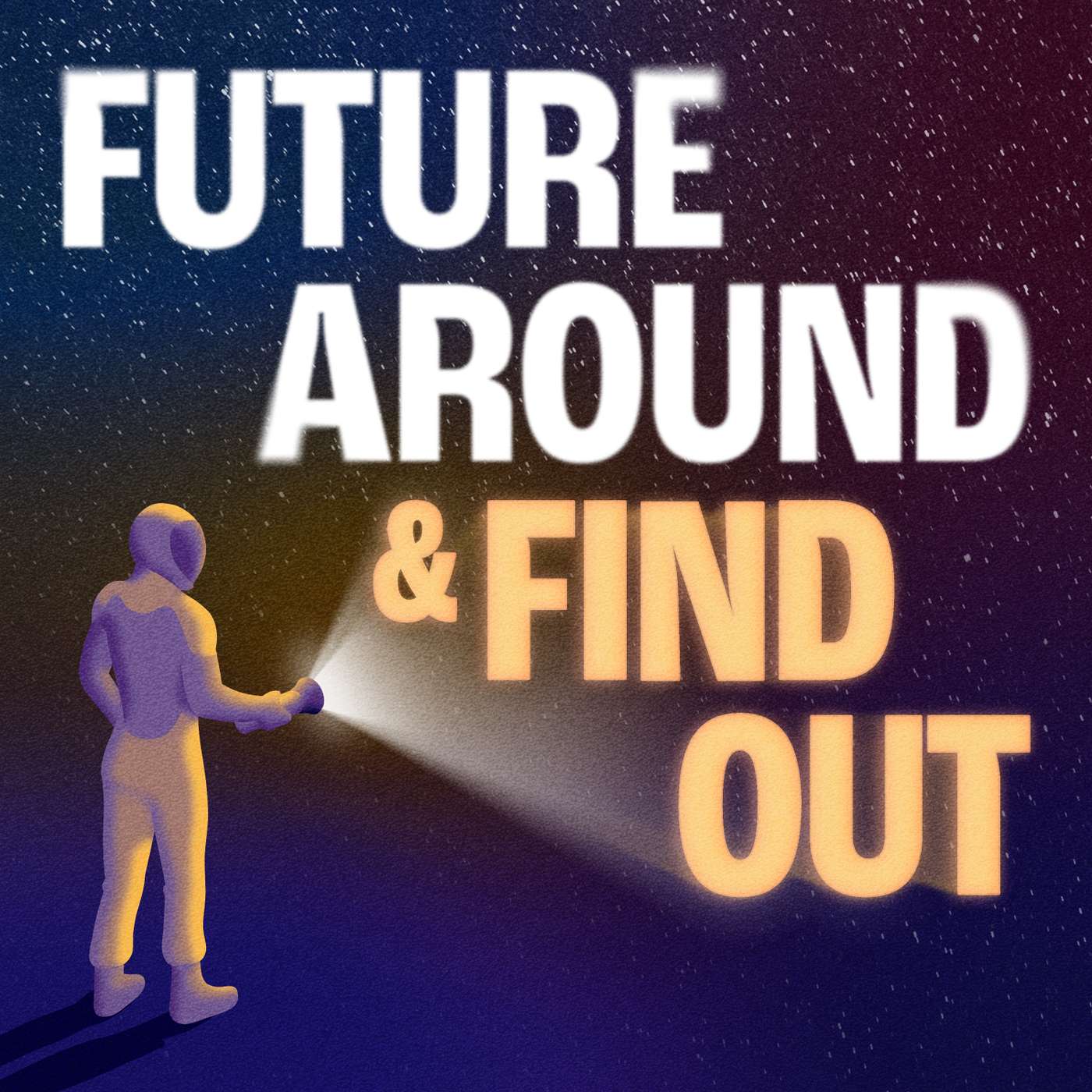
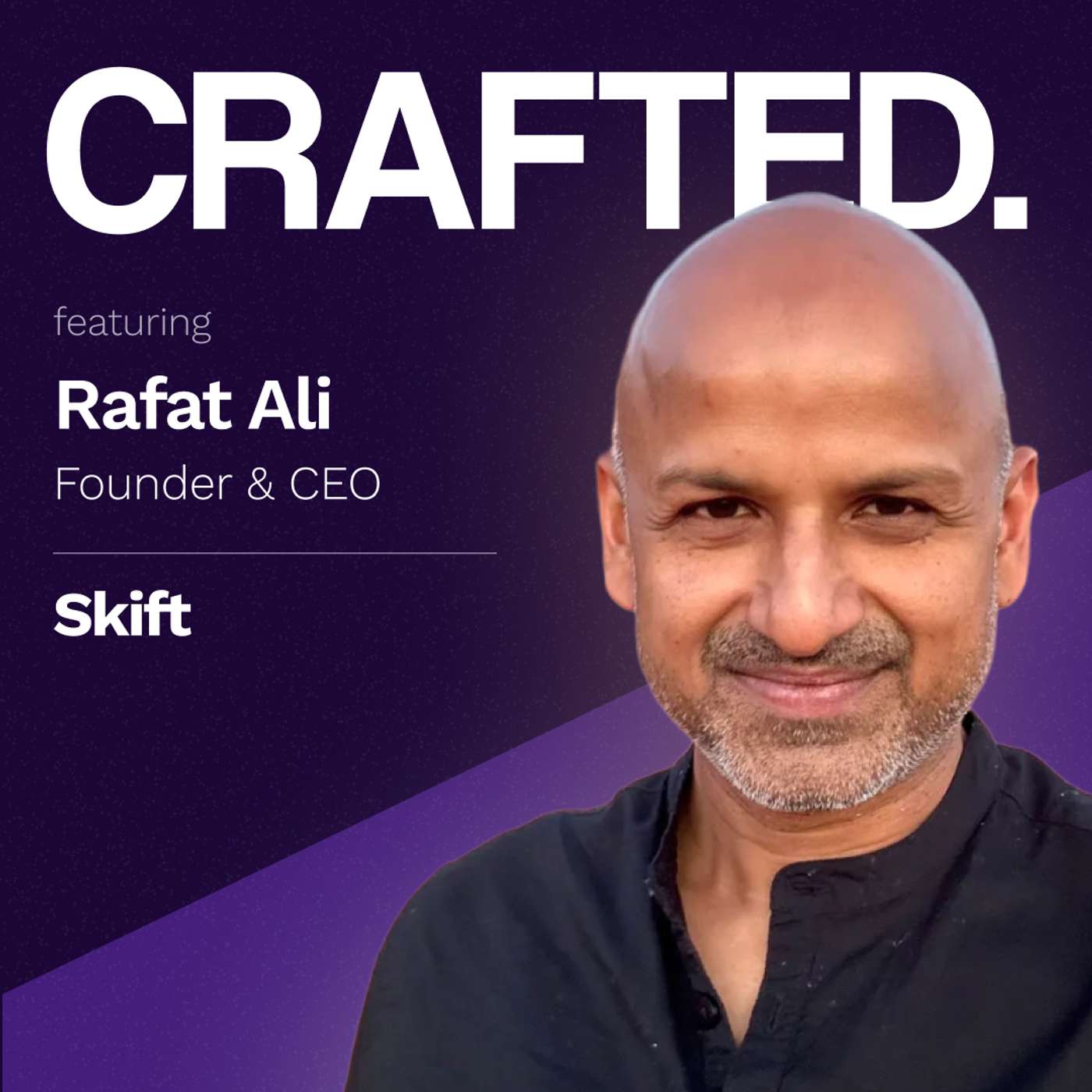
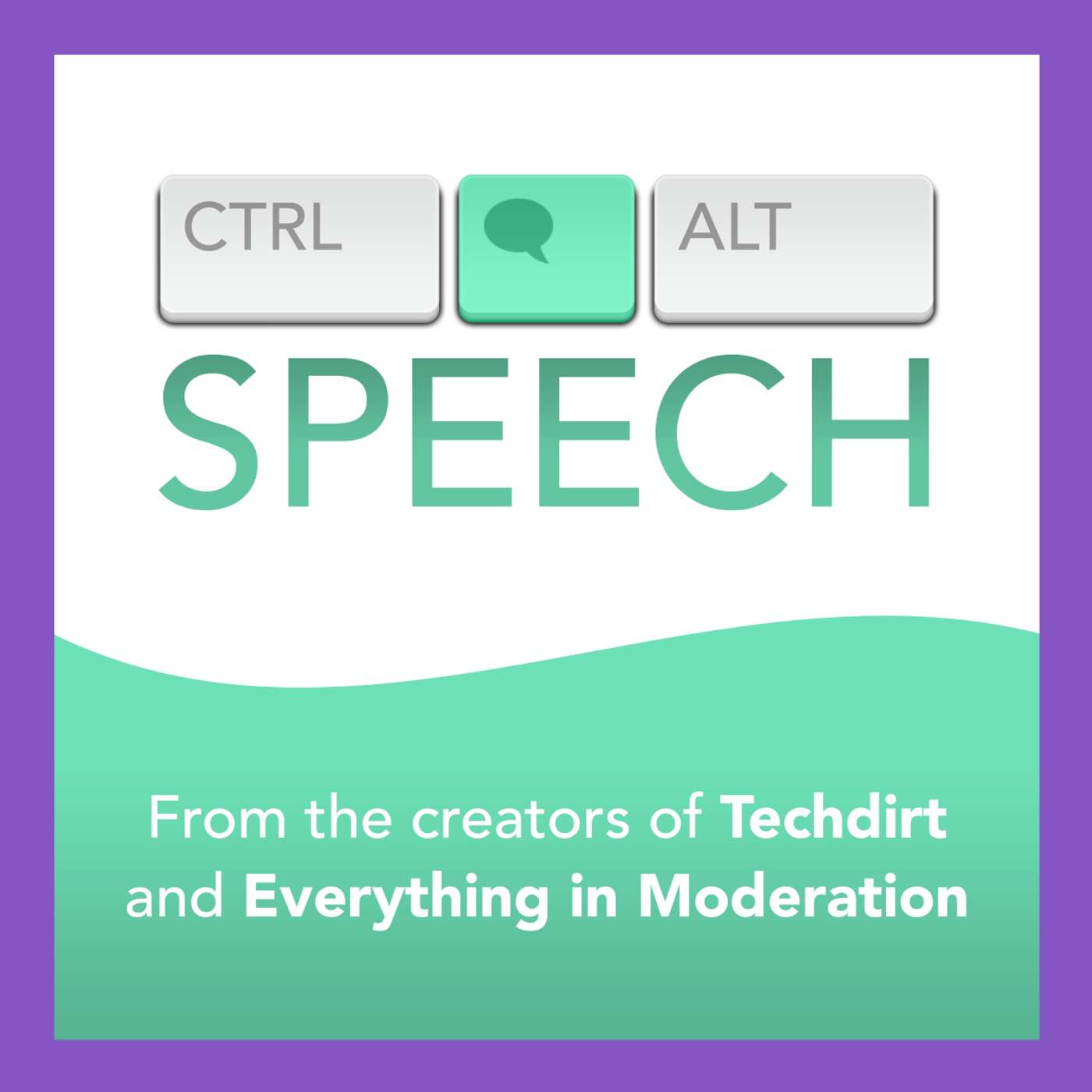
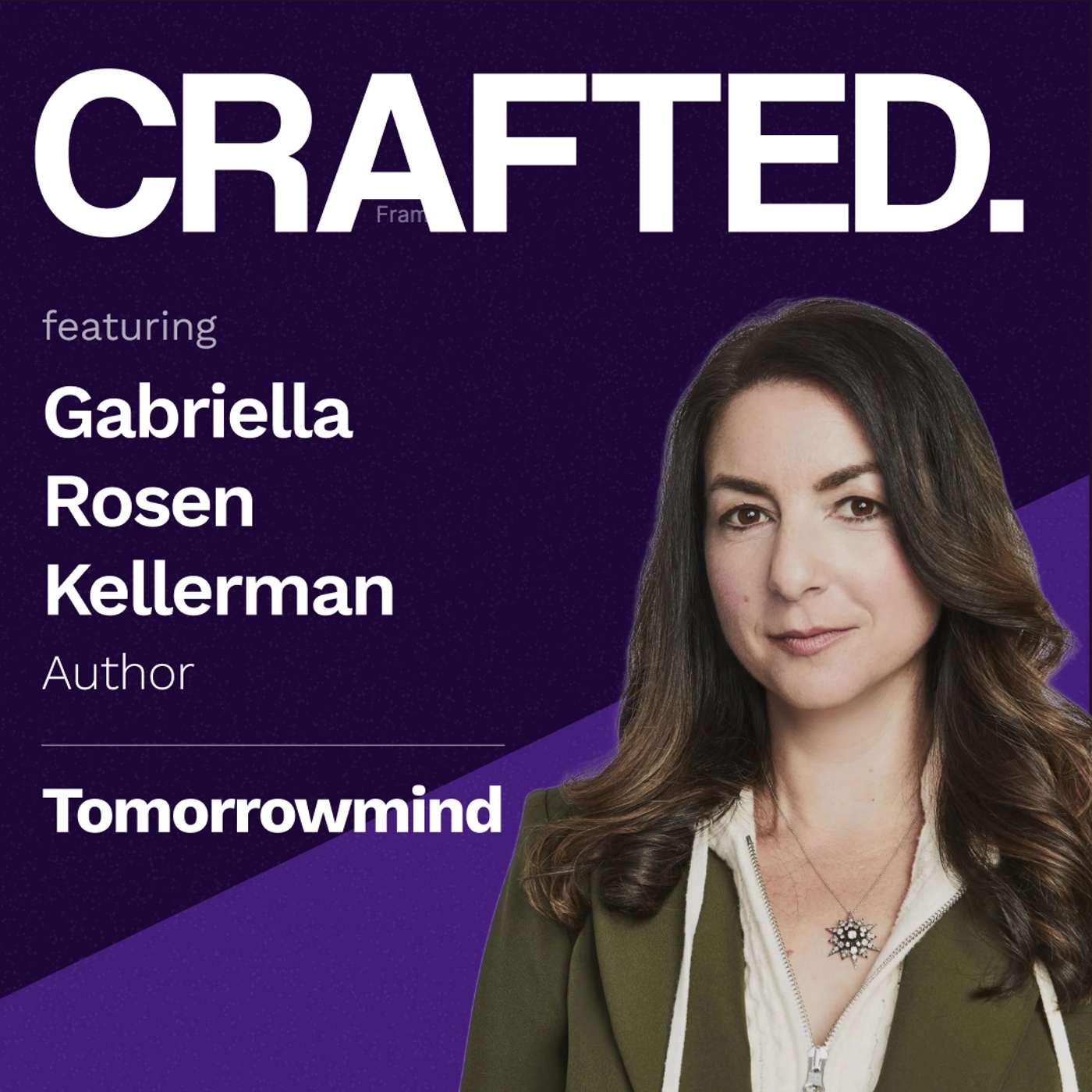
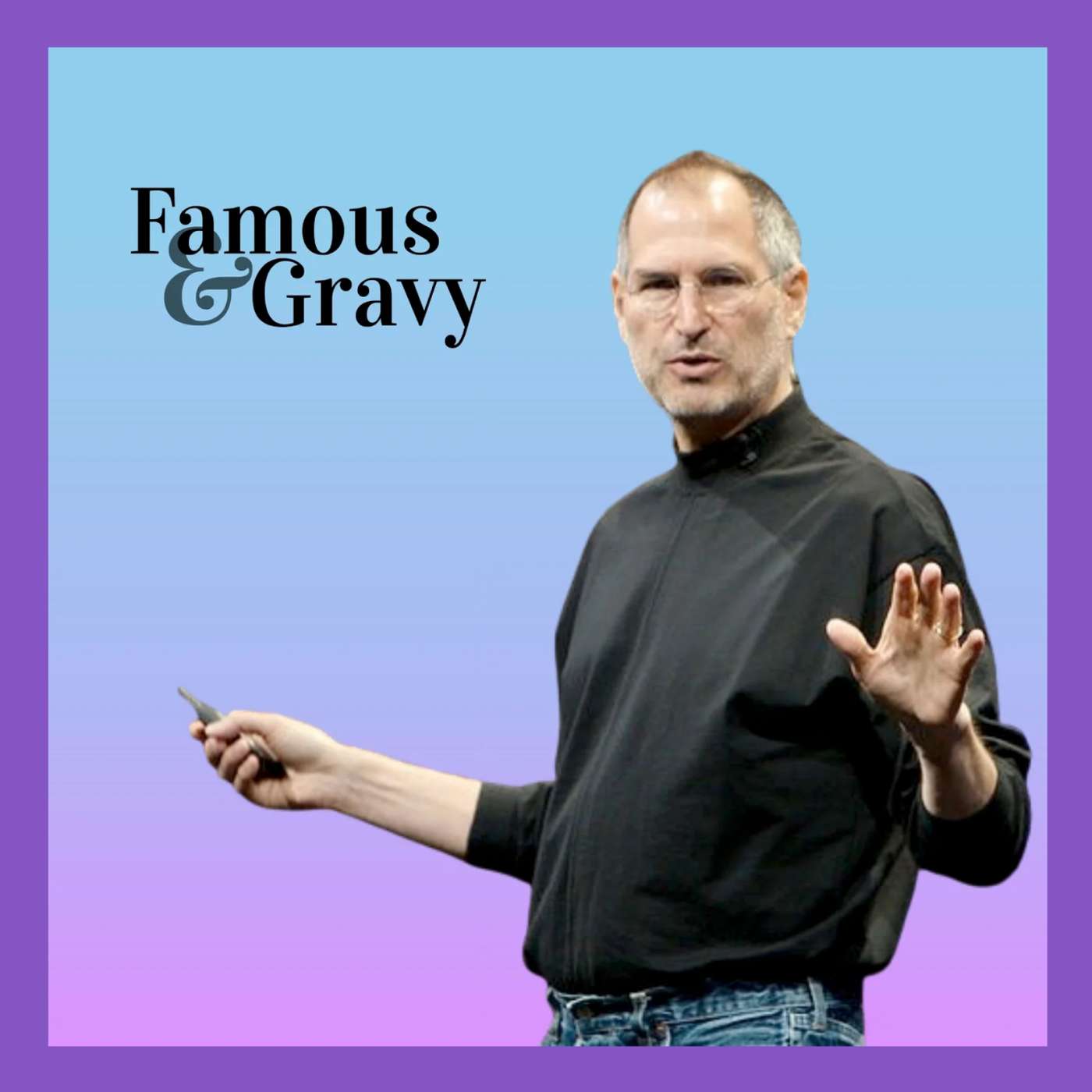

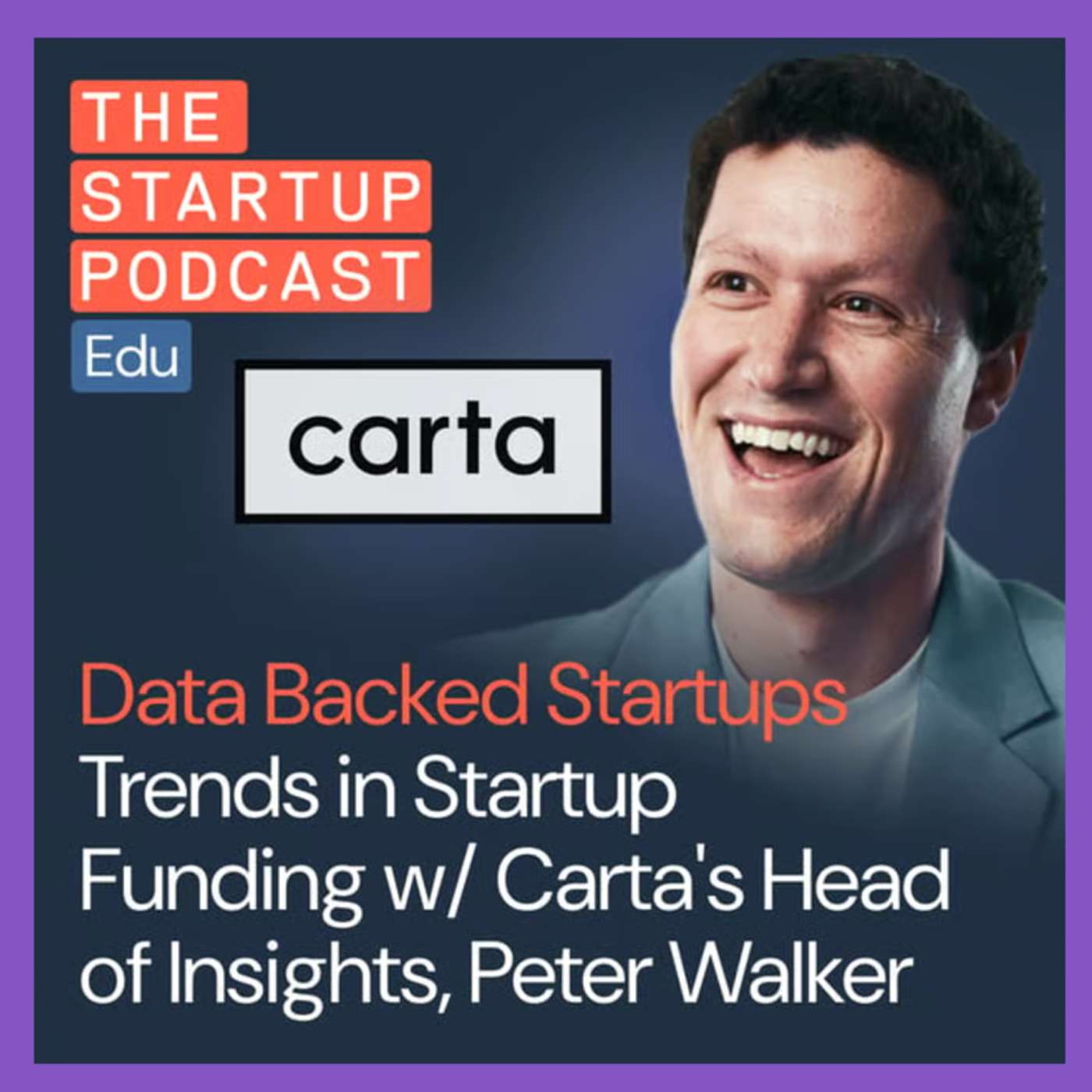
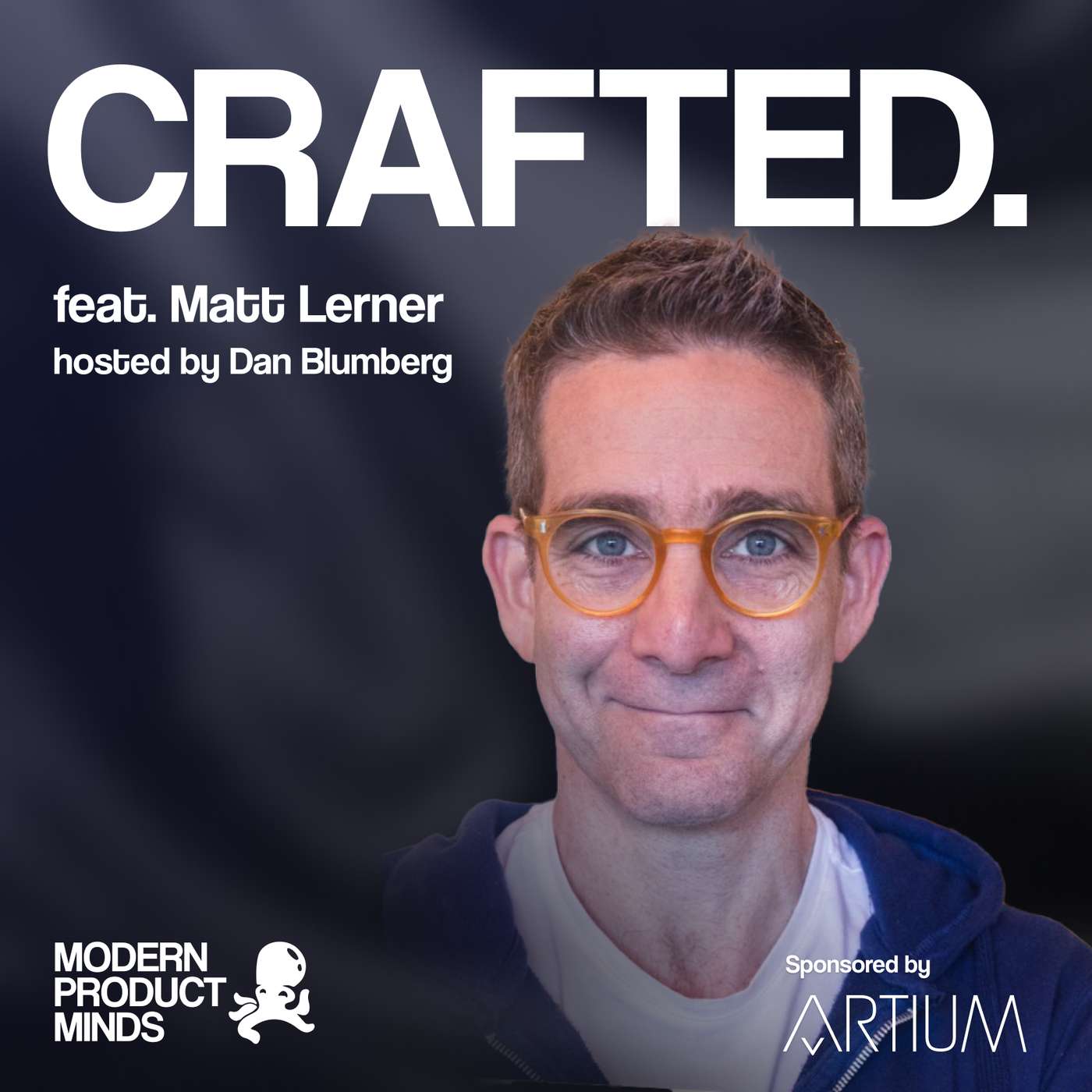
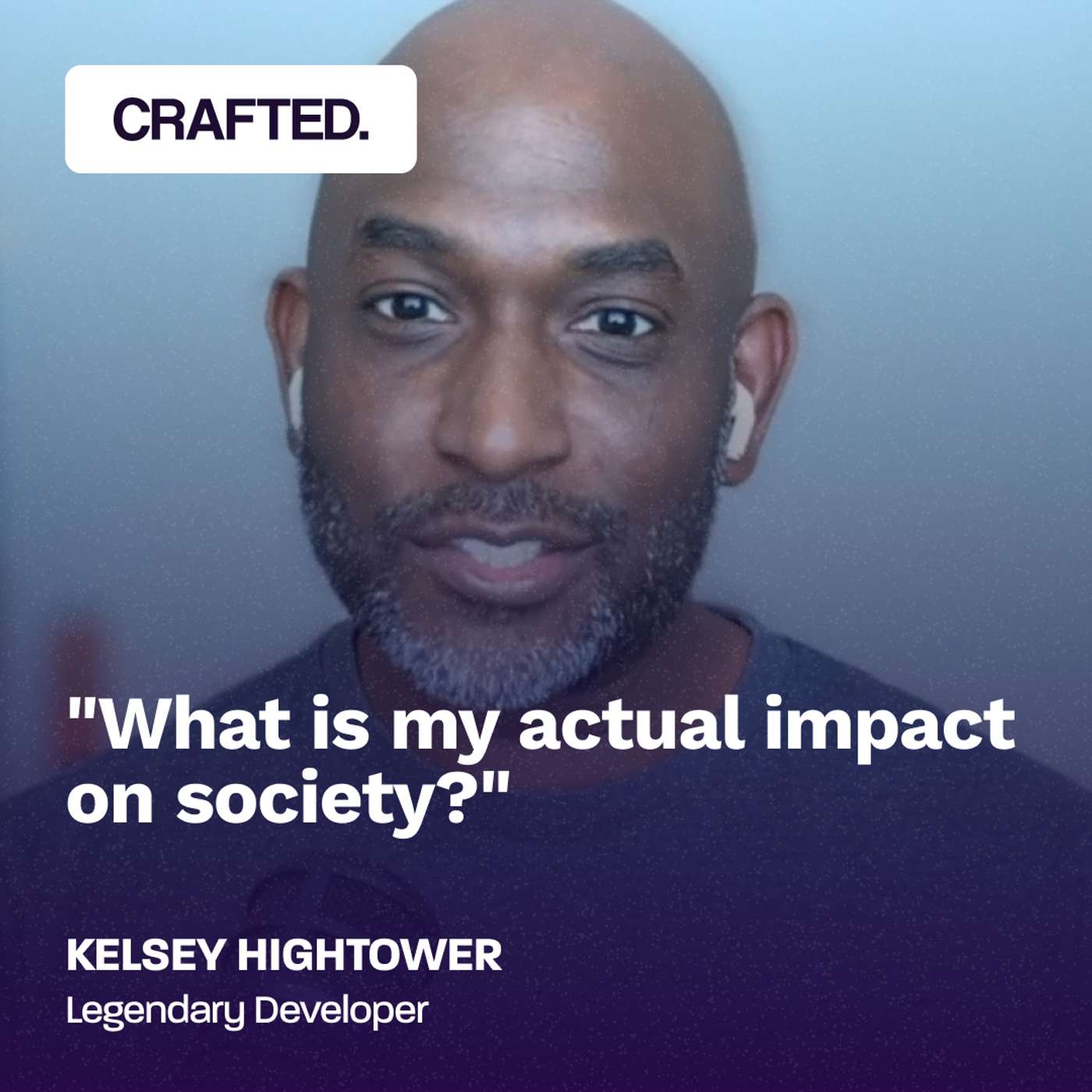
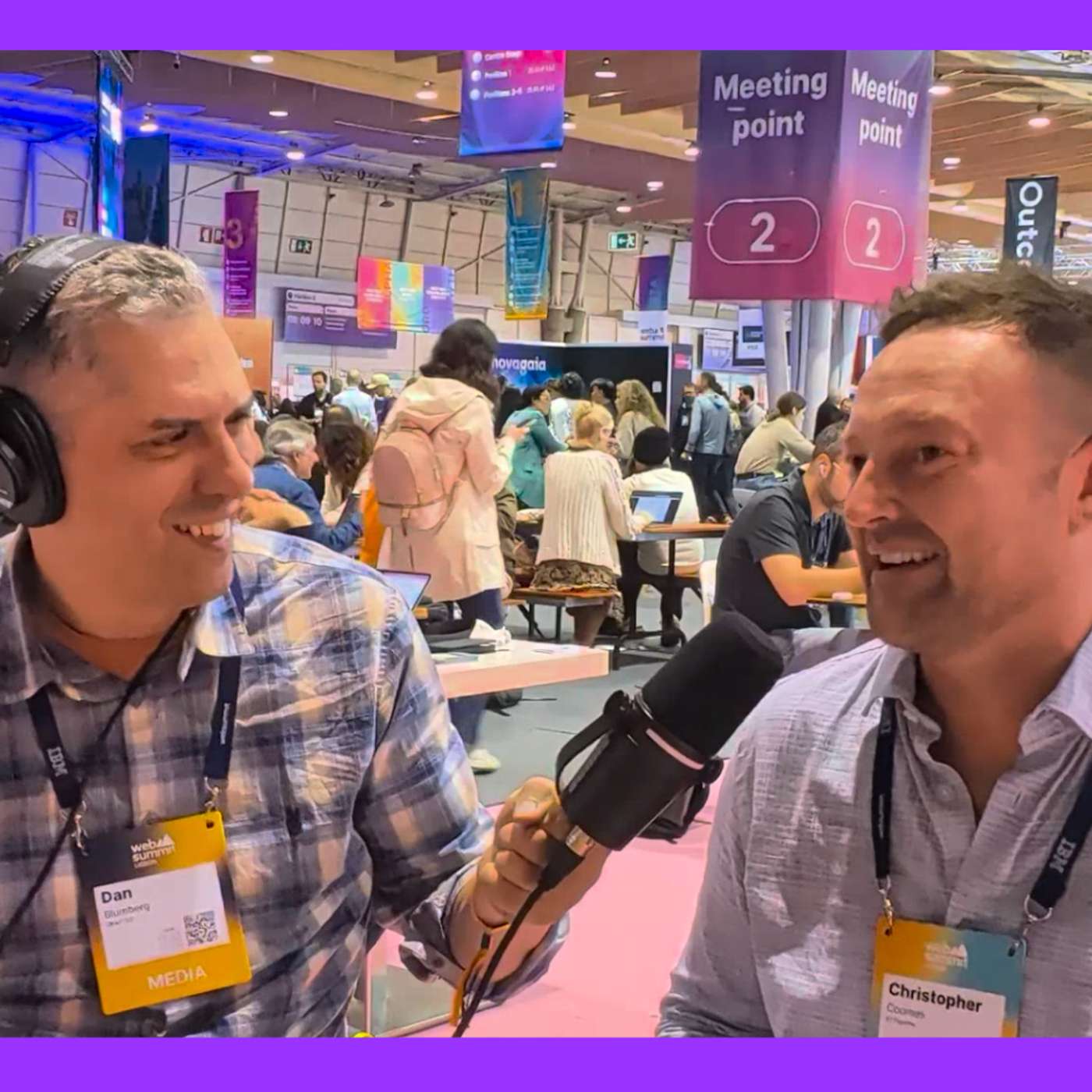
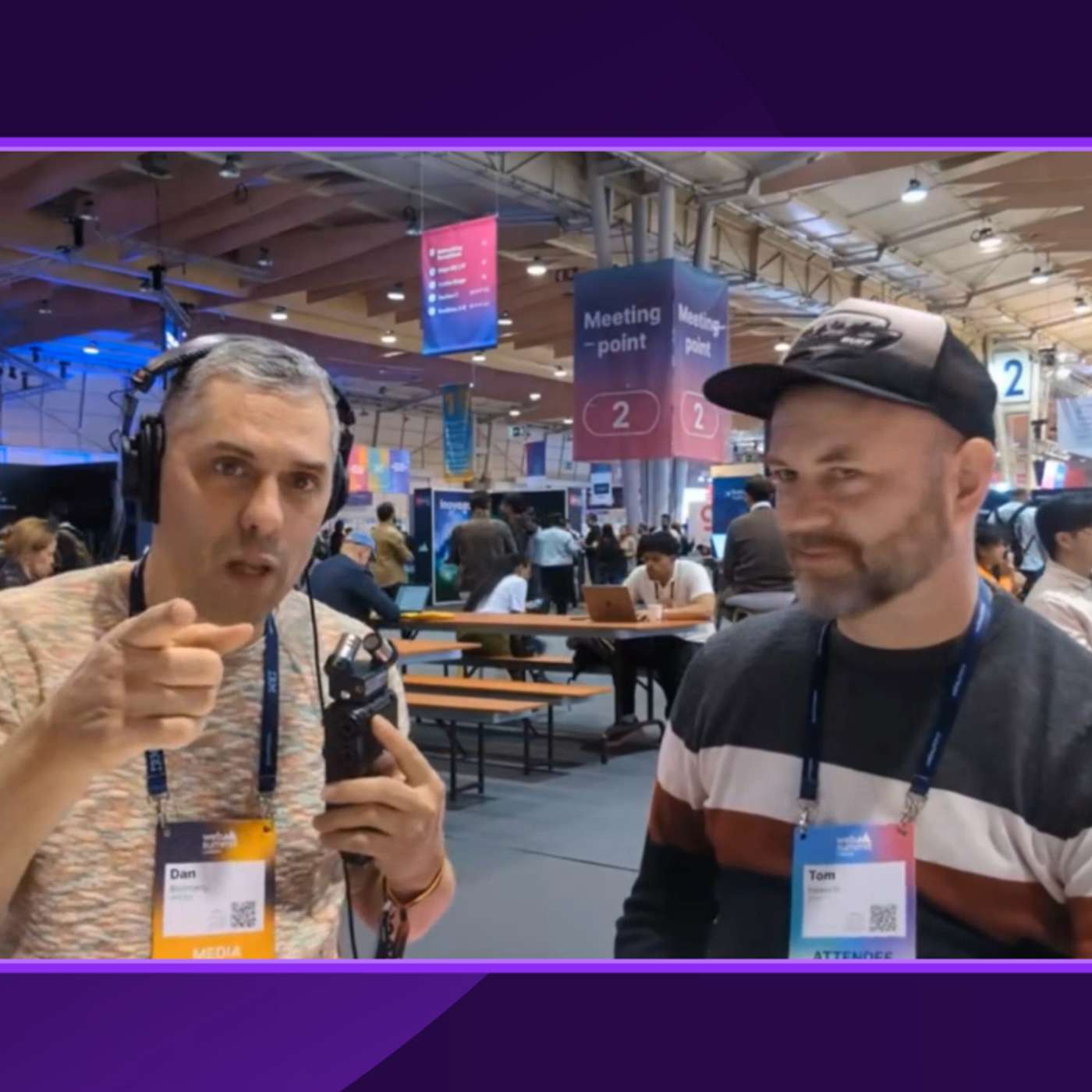
![The Deep Tech Innovations That Could Save the World | Pablos Holman (Inventor & Investor) [Rebroadcast] The Deep Tech Innovations That Could Save the World | Pablos Holman (Inventor & Investor) [Rebroadcast]](https://img.transistorcdn.com/OH65cLM3vSUG1BaOWKUUydnkXF3XsIe2_c2mcm7Wj-s/rs:fill:0:0:1/w:1400/h:1400/q:60/mb:500000/aHR0cHM6Ly9pbWct/dXBsb2FkLXByb2R1/Y3Rpb24udHJhbnNp/c3Rvci5mbS9kOTk4/NjMxNGQ3OTQ4YTky/ZjVhNzg0ZWFmZDQ4/ZDdiYy5wbmc.jpg)
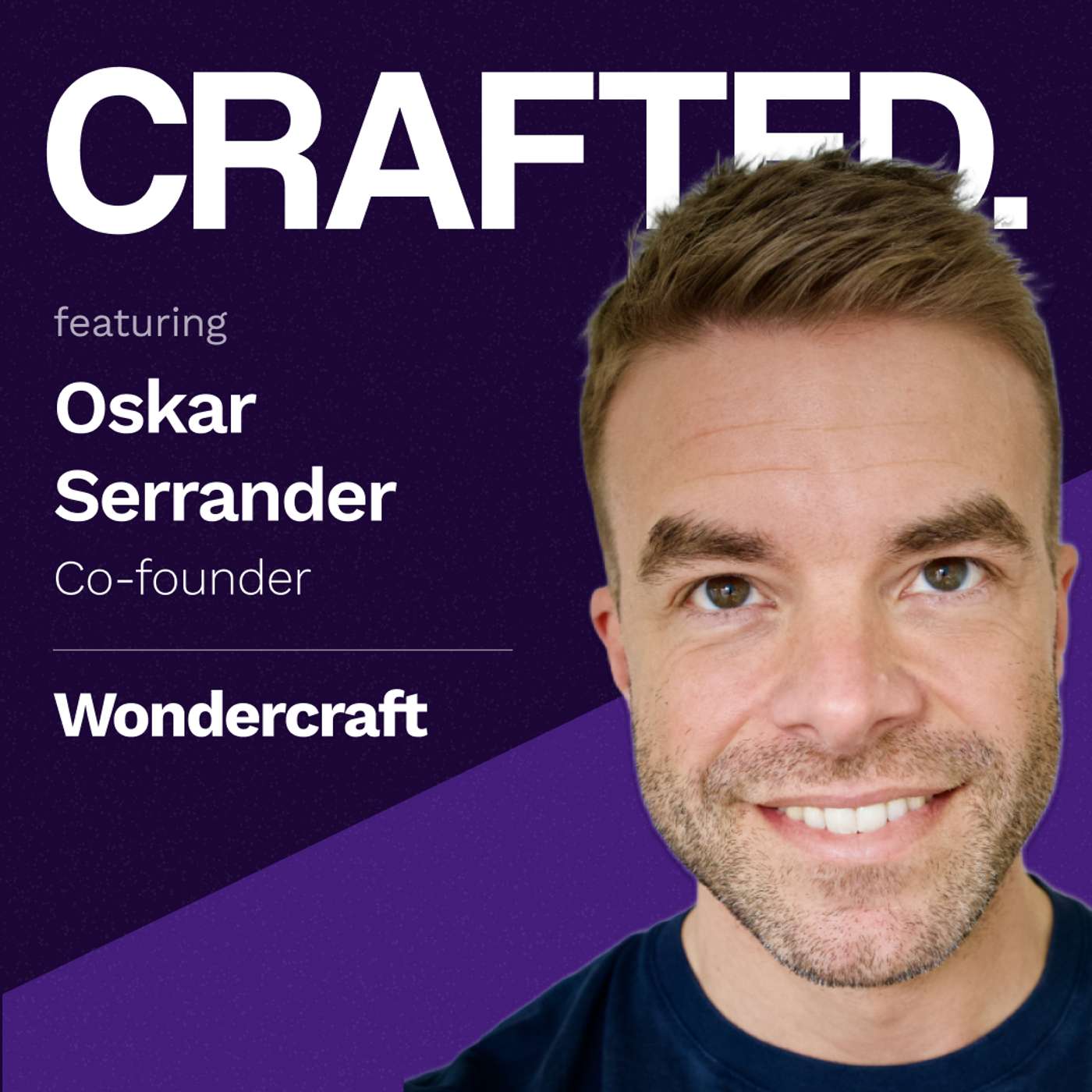



Blade Ball is one of the popular Roblox multiplayer gameplay. It introduces exciting game where players join to compete against each other. In my guide you will be learn how the players survive till end to achieve victory. https://scriptbaldeball.com/
That sounds like an incredible podcast! It’s exciting to see innovators shaping the future of tech and AI. If you’re into creative tools, you should also check out https://faceswaponline.ai/pt/multi-faceswap/ — a fun and powerful way to experiment with multi-face swaps in your photos!
Need a quick and easy way to remove objects from photos? Try this: https://airbrush.com/pt/object-remover!
CRAFTED. explores the future of technology, much like how tools that help you [borrar fondo PNG](https://airbrush.com/es/background-remover) allow you to innovate in your own creative projects. Just as the podcast dives into cutting-edge advancements in AI and products, using such tools can help you refine and create professional, polished images. Both are about using technology to shape and improve your work for the future.
CRAFTED. is an incredible podcast for anyone passionate about innovation and technology! The insights they share are perfect for founders and makers who want to stay ahead of the curve. After tuning in, if you’re looking for a way to unwind and have some fun, why not try out something engaging like 3 Patti Gold https://3pattigold.org/ . It’s a great way to relax while keeping your strategic mind sharp!
Digital Marketing Strategist in Malappuram https://basilsaman.com/
Thank you for sharing such valuable information, it seems to be very useful at techybi